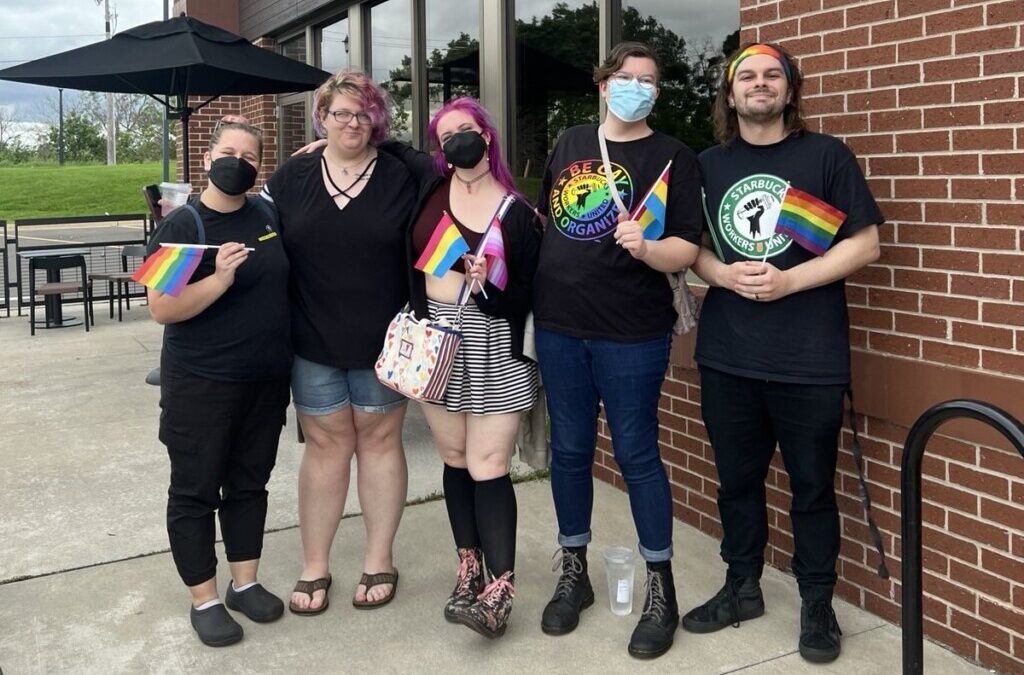Well, it’s my birthday again. Last year, I had the privilege of turning twenty-five, which meant that I had lived for a quarter of a century and that I could finally rent a car without paying a “young driver fee” (I have never wanted to do this anyways). But this year, I’m turning twenty-six, so something even more exciting happens: I am officially aging out of being on my parent’s health insurance. As far as I can tell, this is the last milestone birthday you get until you turn sixty-five, which is a surprisingly sobering thought.
Still, I suppose I’m grateful that my current situation affords me health insurance through my job, meaning that I’m not immediately faced with a sudden upending of stability, but rather a brand new threat of instability should I find myself without a job. Not that I’m necessarily looking to quit anytime soon, but…I’ve certainly thought about it. At no point in the past did I see myself at Starbucks at age twenty-six, but here I am.
It’s not as though I hate the work itself. Honestly, I kind of like the work. It keeps me moving around, making drinks is fun, and I like my coworkers. The coffee itself is…fine. Okay, it’s bad. But I’d be lying if I said I didn’t daydream on the clock about other jobs I wish I had, jobs I’ve applied to, even, that had more to do with my degree. How am I still at Starbucks? Why did I even go to college? What am I even doing here?
I find this is something I have in common with a lot of my coworkers, too. I work alongside a plethora of highly competent graduates, especially those with humanities degrees who, like me, couldn’t find a job in their field and reluctantly opted for the relative stability of Starbucks instead. Even if they like the work, which not everyone does, they’ve almost invariably internalized broad cultural messaging about Starbucks—or any food service, for that matter—being a dead-end job, or a job for high-schoolers: “not a real career.” Consequently, there’s an undercurrent of resentment about working here, and people love to talk about their “escape plan.” People can and do successfully escape, but there’s a universal running joke that if you try to leave the job, eventually the “call of the siren” lures you back again. It happened to me!
The truth is, especially once you’ve got a couple of years under your belt, it gets harder to justify leaving. You often make as much or more as you would in your field, you’ve gotten good at your job by now, and the job market is abysmal, so changing jobs is always a huge risk anyways. Healthcare especially is a sticking point for a lot of people, because it’s uncommon for service jobs to offer healthcare at all, especially for part-time workers. You can work two jobs, or be a parent, or go to school, and you can still get healthcare from your job at Starbucks—for a portion of your paycheck, of course.
Naturally, Starbucks loves to brag about this. Howard Schultz would have you believe that offering healthcare was his original, benevolent idea, and that in 1988 Starbucks became “the first major retailer to offer full health benefits to part-time employees.” But he loves to conveniently leave out how the first union efforts at Starbucks resulted in a contract that negotiated—you guessed it: healthcare for part-time workers, in—you guessed it: 1987. A contract which Howard refused to honor, by the way.
Nowadays, people do come to work at Starbucks specifically for the healthcare, and the pay, and the other benefits. But when they find themselves stuck there for a few years, they start to realize something, probably the same thing those first union baristas in 1987 had realized:
Just because Starbucks offers more than some other employers doesn’t mean they offer enough. If a company can afford to supercommute its CEO on a private jet, fly every single manager out to Las Vegas for a retreat, or offer six-million-dollar incentives to executives for hitting cost-cutting metrics, it can afford to pay its baristas enough to live.
It’s been thirty-eight years since those first Starbucks union efforts, and a new generation of baristas are fighting again; bravely, persistently, for better compensation and benefits in a crushingly antagonistic political atmosphere.
In the last couple of years, I’ve gotten the chance to become one of those baristas and to join that fight in ways I only dreamt about back in 2022. For me personally, the result has been a powerful sense of focus and purpose, which also serves as a proverbial respirator against an ever-impending miasma of societal destruction. Sure, I’m still sick of some aspects of my job, the same way I have been for years now. But I do have a reason to be there, I have a hard-earned sense of dignity about the work I do, and I have a steadfast feeling of solidarity with my fellow baristas everywhere.
I’m only turning twenty-six. It’s by no means too late for me to get a job related to my degree, and maybe someday I’ll get healthcare from someplace other than Starbucks. For now, though, I’m not in any hurry to leave.

Phil Rienstra (they/he) (‘21) studied writing and music, and since graduating has developed a deep interest in labor rights. They currently work at a unionized Starbucks and volunteer with Starbucks Workers United. They’re an amateur chef, a perennial bandana wearer, and an Enneagram 4. He lives in St. Paul with his spouse, Heidi.



phil, my comrade! happy birthday! i really enjoyed reading this piece, i like how you’ve connected workers’ experiences to broader societal trends & the ongoing struggle to get Starbucks to treat us with the respect & dignity we deserve!